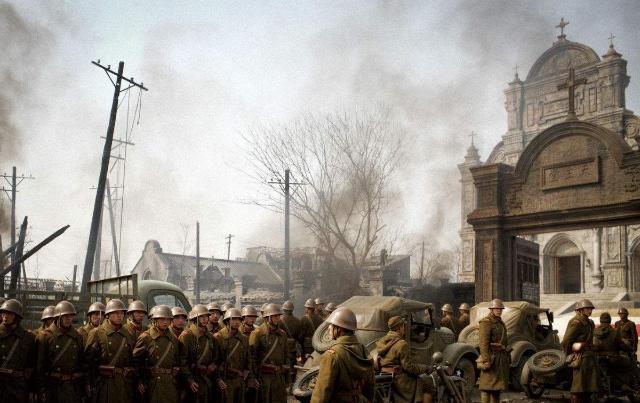Since the beginning of the Three Kingdoms, people have always had a high opinion of Guan Yu. He is not only heroic and invincible, but also uses soldiers like gods. The most important thing is that the righteous qi on Guan Yu's body can be described as a righteous thin cloud sky. And in his heart, "righteousness" always comes first.
In fact, during the War of Resistance Against Japanese Aggression, there was a man also known as the "Living Guan Gong", who was the top general in China who died in battle, Zhang Zizhong.

Zhang Zizhong (1891-1940) was born in a family of officials and eunuchs in Shandong, which can be said to be a famous family with a rich family, so from an early age, he could read poetry and receive excellent education and inheritance. At the age of eighteen, he married the daughter of his father's best friend under the arrangement of his family. Later, Zhang Zizhong, bent on serving the country, joined the China League and threw himself into the anti-Qing movement after the "Xinhai Revolution". After graduating, he joined the army and gradually became the pioneer of the northwest warlord Feng Yuxiang.
After the outbreak of the Sino-Japanese War, he led his troops to various places and actively resisted Japan and saved the country. In 1939, Japan suddenly launched the Battle of Suizao, and Zhang Zizhong personally led the troops to repel the enemy army and achieved the "Great Victory of Ebei". In December of the same year, Zhang Zizhong took advantage of the enemy's lack of preparation and led his regiments to take the initiative to attack and destroy more than 4,500 people, which was known as the "Xiangdong Victory". The Japanese suffered heavy losses in this battle, and then the Japanese army called Zhang Zizhong "modern Guan Gong" and "Living Guan Gong".
In May 1940, Japan gathered a total of 300,000 corps in the western Hubei region and launched the Battle of Zaoyi. By the 15th of the war, the Nationalist 33rd Army had been almost exhausted, leaving only more than 1,500 people, and it was still besieged by the Japanese army. During this period, although Zhang Zizhong fought bravely, the bullets were merciless and left a wound on his left arm, but he still insisted on commanding the battle. At dawn on the 16th, the nationalist 33rd Group Army was completely destroyed under the commander Zhang Zizhong.
After the battle, when the Japanese army cleared the battlefield, it found the body of General Zhang Zizhong, who originally thought that he would break through. Subsequently, the Japanese, out of the spirit of Bushido, collected the body of General Zhang Zizhong into a coffin. And when scrubbing the body of General Zhang Zizhong, a total of 8 large and small wounds were found.
Later, Chiang Kai-shek issued a death order that the Nationalist government must recover the body of General Zhang Zizhong. After some difficult negotiations, General Zhang Zizhong's coffin from Yichang boarded a ship for Chongqing. During this period, 100,000 soldiers and civilians spontaneously escorted the heroic soul of General Zhang Zizhong. Zhang Zizhong's wife, Li Huimin, after learning of her husband's heroic martyrdom, was cut like a knife and died of hunger strike for seven days. Later, the bodies of the husband and wife were buried together in Meihua Mountain, Chongqing.
I still remember General Zhang's famous words:
The determination to die for the country and the nation, the sea is not clear, the stone is not rotten, and there will be no change!